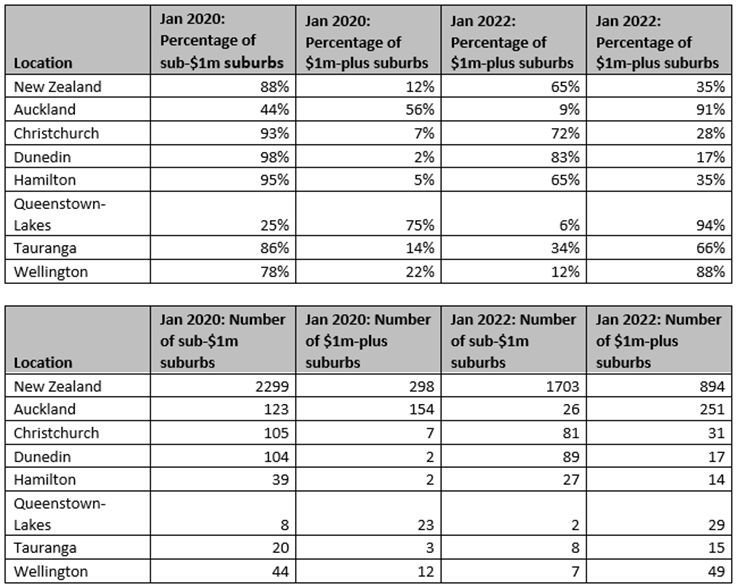OneRoof research reveals nationwide hit to housing affordability
- February 2025 (3)
- January 2025 (2)
- December 2024 (2)
- November 2024 (7)
- October 2024 (3)
- September 2024 (7)
- August 2024 (6)
- July 2024 (7)
- June 2024 (7)
- May 2024 (8)
- April 2024 (8)
- March 2024 (7)
- February 2024 (5)
- December 2023 (6)
- November 2023 (8)
- October 2023 (3)
- September 2023 (13)
- August 2023 (7)
- July 2023 (4)
- June 2023 (11)
- May 2023 (7)
- April 2023 (4)
- March 2023 (9)
- February 2023 (3)
- January 2023 (2)
- December 2022 (5)
- November 2022 (8)
- October 2022 (4)
- September 2022 (7)
- August 2022 (9)
- July 2022 (2)
- June 2022 (11)
- May 2022 (5)
- April 2022 (4)
- March 2022 (10)
- February 2022 (8)
- January 2022 (1)
- December 2021 (9)
- November 2021 (7)
- October 2021 (1)
- September 2021 (9)
- August 2021 (5)
- July 2021 (6)
- June 2021 (9)
- May 2021 (8)
- April 2021 (2)
- March 2021 (4)
- February 2021 (1)
- January 2021 (2)
- December 2020 (6)
- November 2020 (4)
- October 2020 (3)
- September 2020 (3)
- August 2020 (4)
- June 2020 (2)
- May 2020 (7)
- April 2020 (2)
- March 2020 (4)
- February 2020 (4)
- December 2019 (5)
- November 2019 (4)
- October 2019 (5)
- September 2019 (13)
- August 2019 (5)
- July 2019 (3)
- June 2019 (5)
New research highlighted in today’s OneRoof Property Report shows housing affordability nationwide has taken a significant hit, with an explosion in the number of $1 million suburbs across seven of New Zealand’s major metro areas.
The research, carried out by OneRoof and its data partner Valocity, analysed house price inflation across 646 suburbs in Auckland, Christchurch, Dunedin, Hamilton, Queenstown, Tauranga and Wellington.
Between January 2020 and January 2022, the number of $1 million plus suburbs across the major metros had grown 100 percent from 203 to 406. Outside of those metro areas, the number of $1 million plus suburbs grew 413 percent from 95 to 488 over the same period.
Furthermore, the nationwide average property value jumped 45 percent from $760,000 to $1.103m, with some cities seeing house price growth of more than 50 percent.
OneRoof editor Owen Vaughan says the research clearly highlights the growing inequality in New Zealand’s housing market.
“The housing market boom has irrevocably changed the face of New Zealand’s biggest cities, turning previously affordable suburbs into no-go areas for first home buyers. The housing frenzy of last two years, fuelled by low interest rates and FOMO, has radically altered the landscape for buyers and sellers.
“Not only have we seen an explosion in the number of $1 million plus suburbs nationwide, but there’s also a significant crunch at the bottom end of the market. Across the metros we analysed, the number of suburbs with an average property value of less than $500,000 decreased 82 percent, from 84 suburbs to just 15.
“Suburbs that have a property value of less than half a million across New Zealand’s major cities are also now few and far between, with the majority of those suburbs being in fringe locations with very few amenities or services,” says Vaughan.
The research showed the region most affected was Wellington, where the suburbs with an average property value of less than $1 million fell by 85 percent - from 44 suburbs in January 2020 to just seven in January 2022.
Tauranga saw the next biggest fall in sub $1 million suburbs - a 60 percent decrease from 20 suburbs to 8 suburbs over the two-year period.
Auckland fell from 123 suburbs under the $1 million mark to 26 over the same period, while the number of suburbs in the $1.5 million plus band increased by a whopping 161 percent from 57 to 149.
Vaughan says of real concern was the change in house prices in South Auckland, with the cheapest suburb in the region now having an average property value of $738,000 and most suburbs closing in on $1 million.
“In January 2020 there were ten South Auckland suburbs with an average property value of less than $700,000. Now there are none. In a region where incomes are lower and housing stock is typically of lower grade, this trend is worrying and further demonstrates the impact the housing market boom has had, making home ownership even further out of reach for many New Zealanders,” he says.
ENDS
For further information please contact:
Kelly Gunn
GM Communications – NZME
+64 27 213 5625

